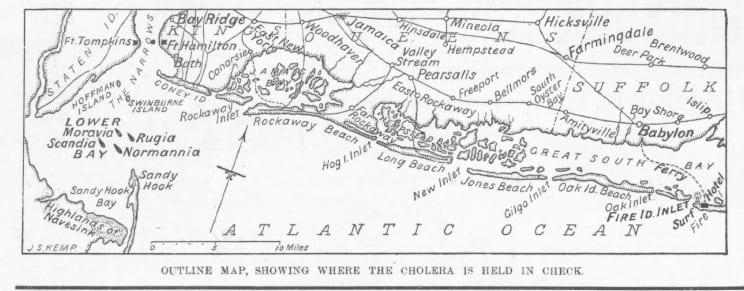Today we will be looking at some forms of protest and dissent which colonial merchants and consumers engaged in, as well as some interesting incidents that followed. After the French and Indian War, or the Seven Years War as it was known globally, the British Parliament passed a series of acts imposing taxes and importation duties on food and material goods in an effort to pay for the war and future defense of the colonies. Years of inconsistent, unenforceable, and incomprehensible policies established a loose, laissez faire style of colonial governance that was very favorable to the colonies. Many in the economic, merchant, and supply occupations prospered and contributed, through their trades, to the relatively higher quality of life and opportunities in the colonies as a whole. As a result, a majority of the colonists were resentful of the efforts of such men as the British Chancellor of the Exchequer Charles Townshend to reassert imperial control over the economy and governance of the colonies. So, how did colonists voice their discontent with imperial policy? Let’s get into it.
Category: Text Posts (page 4 of 5)
Immediately following the murder of Mr. George Floyd Americans took to the streets to voice their support, sorrow, frustration, anger, and disappointment in a manner and magnitude that people of my generation have not seen, and America has not seen, since the Civil Rights era. In the midst of a global pandemic no less! Current events have me thinking back to our early beginnings as a collection of provincial colonies clustered along the North American coast. The First Amendment protects our most valuable rights: religion, speech, and the ability to protect these rights through peaceful assembly and petition.
With approval from Governor Flower, Jenkins had purchased the debilitated Surf Hotel from proprietor David Sturges S. S. Sammis for the inflated price of between $210,000 and $250,000. In the 1850s Sammis opened the hotel, an immensely popular and profitable summer resort in its time that had fallen into disrepair by the 1890s. After the purchase Jenkins had the site cleaned up and staffed with a manager and physician, and police guards. In anticipation of the passengers of the Normannia and their five-star quarantine, “Forty French cooks and waiters” were requested but never arrived. They “were stopped at Babylon and stoned,” effectively preventing them from embarking for Fire Island. For selling the property to the state as a quarantine site Sammis was threatened with a tar and feathering by unidentified individuals.
“I knocked out Adolf Hitler over 200 times,” says Captain America in his title Marvel Studios film. And we laughed, because Chris Evans’ comedic timing is gold, but also because, good, knock him out again. Captain America was first published by Timely Comics, Marvel’s predecessor, in 1941, and he was a quick favorite during the wartime for obvious reasons. He fought for what was right, and every time he got knocked down, he got back up again, and that’s what the people needed during World War II. It should come as no surprise, then, that during the tail end of the Great Depression and into the long years of World War II, we have something referred to as the golden age of comics.
As Mark Johnson points out, while “many claimed to be put off by the shocking and explicit nature of the Black Mirror’s first episode”, the second episode “might be a more representative introduction to the series” because in the first one the “technology is present, although is arguably less central than other concerns”. Precisely, one of the features of the series is to expose some of the technological phenomena that are happening right now in a manner that they would lose their familiar qualities so their sinister edges become more evident. That is something that the series second episode “Fifteen Million Merits” does fully.
“Fifteen Million Merits” shows a society focused on the production of energy that, at the same time, is absorbed by the consumption of entertainment through a regime as violent as the one that forces people to work. But where is the difference between the society that this chapter portrays and reality? The difference resides for example in the fact that in the episode we do not know exactly what energy is produced for, we don´t know what people work for. In other words, what “Fifteen Million Merits” does is overshadow the productive character of the economy to make us concentrate on the most sinister features of its relationship with entertainment.
As the authors of the Frankfurt School pointed out almost one century ago, the relationship between capitalism and the entertainment industry is not a secondary relationship, there lies the essence of capitalism. This relationship is highly complex, and it can be pointed out that the entertainment industry not only socially reproduces the ideology of capitalism but is the basis of the consumption dynamics that give life to global capital. That is why “Fifteen Million Merits” is not only showing the most sinister side of consumerism in the digital age. It shows that the alienation of all the members of society forced to produce continuously without knowing the purpose is exactly the same as the alienation to which they are led by senseless consumerism.
I think it was around the second week of quarantine here in New York that I discovered marble racing. I was on Twitter, naturally, and I saw a video start up from someone or some account, I don’t remember, but I do remember thinking, “Wow, it mustbe bad if I can’t stop watching this.” It was a marble racing video from something called Marbula 1, and yes, it is just as good as it sounds. Marble racing got some pickup on Twitter as a result of some popular accounts reposting their videos, even earning air time on ESPN The Ocho, and with the quarantine putting a stop to most sports’ seasons, it shouldn’t come as a big surprise. We have something of a history of reviving sport and competition even when the future seems bleak.
A few years ago, in the small city of Sucre, Bolivia, the news reported the story of a boy who had been missing and found in a cyber cafe by his parents. He spent more than 48 hours in a row playing online games. In Bolivia, as in most Latin American countries, cybercafés are still very popular as they allow access to computers and internet since many do not have access to them at home. Although the number of cybercafés had declined in the residential areas of Bolivian cities, many can still be found in poor areas. A characteristic of these places is precisely that their biggest consumers are minors. The news report about the lost boy also explains that the cybercafé where he was found even offered mattresses and quilts to the children so they could rest for a while. One of the reports ends by stating that the authorities of Sucre would have taken actions on the matter since it was something illegal.
The idea of escapism has drawn my attention a lot since at first sight it seems to be a phenomenon whose only spur would be a recognizable crisis. However, escapism is a fundamental part of contemporary culture. Wherever we see, video games, cinema, literature, art, there is escapism. But, what is the crisis that is leading to this general escapism ? Starting from this question, which queries a broader framework than the current crisis that societies are going through due to Covid, I am interested in approaching the culture of escapism and its offer of evasion.
Stores had “Business as usual” signs on their windows, but life was hardly “as usual” in London during the Blitz. Beginning in September 1940, German bombs fell on London at night. For their safety, millions of children from the capital were sent away to live with family, friends, or volunteers in the countryside. For those who stayed in London, life changed dramatically. London’s East End was hit particularly hard, with many of the foreigners who lived there losing their lives and homes. Food and clothe rationing meant every piece of land was used to grow extra food and people were given “coupons” to obtain the clothes they needed. At end of the Blitz, over 40,00 people died and over a million left homeless.
In my previous post, Being Blue in New York, I sketched out a brief history of cholera in New York City and the development of disease theory and of prevention and management strategies over the course of several outbreaks. Today I am going to talk about quarantine, class, and immigration.
The Aeneid was written in a time that would feel familiar to all of us: political strife, civil unrest and decades long military campaigns that never quite seem to end. Towards the end of the 1st century BCE, after at least 50 years of continuous conflict within and beyond the Roman borders, Augustus, Julius Caesar’s heir, emerged victorious from the Battle of Actium, defeating Mark Antony and marking a turning point in history. Augustus declares himself the princeps civitatis of Rome, a term that literally means “first citizen” but actually means “emperor”, and so falls the Roman Republic to the dawn of the Roman Empire. Continue reading
© 2025 Crisis and Catharsis
Theme by Anders Noren — Up ↑





